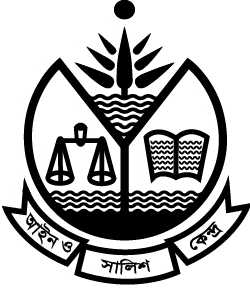A call for transparency
By Tamanna Hoq Riti from ANNI member Ain o Salish Kendra (ASK)
The National Human Rights Commission’s procedures require an upgrade
The former chairperson of the National Human Rights Commission, Bangladesh went in retirement on July 1, 2019. We were expecting to get a new chairperson from July, but unfortunately, that did not happen.
From what it seems, the new chair will be appointed in August along with other members, ie, if the current members are not appointed for the second term. Regrettably, there has been no news about the selection process of the commission, and no public discussion or consultation held.
In many countries of the world, an open process is followed in appointing a chairperson and members of the commission; open applications are invited. As part of that, potential candidates can apply for themselves, or civil society organizations can recommend names of candidates.
From that, the selection committee prepares a list of possible candidates on the basis of criteria set earlier and familiar to all. Then they take stakeholders’ opinions and recommendations on that list, based on which the selection committee then takes the final decision.
During the last selections, the selection committee did not make any attempts to discuss or share with the civil society. Also, there was very little information made public regarding the selection process.
It seems like this time also, there is no exception.
Following Article 5 of NHRC Act 2009 on the formation of the commission, the commission has one chairperson who is the chief executive of the commission and six members. The chairperson and one member of the commission are full time and other members are honorary. Respecting diversity, the law ensures the selection of at least one female member, and one from the ethnic groups, which has been followed in the last selections of the commission.
Article 6 provides for the appointment, terms of office, resignation, etc of the chairperson and members of the commission. It clearly mentions that the president will appoint the chairperson and members upon the recommendation of the selection committee. They shall be appointed depending on their remarkable contribution in the field of legal or judicial activities, human rights, education, social service, or human development.
Paris Principles, adopted by the UN General Assembly on December 20, 1993, sets out the minimum standards required by national human rights institutions (NHRIs) to be considered credible and to operate effectively.
Global Alliance on National Human Rights Institutions (GANHRI) is the international association of NHRIs. GANHRI, through its Sub Committee on Accreditation (SCA), reviews and accredits NHRIs in compliance with Paris Principles. The commission was reviewed twice in 2011 and 2015. They were accredited with B status both the times as being not fully in compliance with the Paris Principles, highlighting the lack of representation of the civil societies and government’s control over the selection committee.
In 2015, SCA recommended to follow Paris principles and to:
λ Publicize vacancies broadly
λ Maximize the number of potential candidates from a wide range of societal groups and educational qualifications
λ Promote broad consultation and/or participation in the application, screening, selection and appointment process
λ Assess applicants on the basis of pre-determined, objective, and publicly-available criteria
λ Select members to serve in their individual capacity rather than on behalf of the organization they represent
In the context of the upcoming selection, Ain o Salish Kendra (ASK) organized a round-table discussion meeting on “What kind of NHRC Do We Want” on June 30, where the representatives of civil society organizations placed their opinions and concerns on the selection procedure of appointing members as well as what kind of chair and members do they want. Reportedly, the UN officials and foreign diplomats in Dhaka met Speaker Shirin Sharmin Chaudhury and Law Minister Anisul Huq, and shared the need for the same.
Besides the recommendations of the SCA and the statutory procedures in the founding act, the speakers who attended the roundtable also opined for institutionalizing the selection process by following Paris Principles. Although the act mentions who will be included in the selection committee, it needs to specify a policy and inform the people on how the interested persons will express their interest to be members of the committee and of the requisite selection criteria.
Till date, the chairperson and full-time member position holders were always men. According to the speakers, a woman should be appointed in one of the top two positions this time. They also urged the government to refrain from appointing former secretaries or government officials to ensure the independence and neutrality of the commission.
It is important to make necessary changes to ensure effective contribution from the other five members by reforming the foundation law. In the interim period, measures also need to be taken to ensure that the honorary members can make meaningful contributions to activities of the commission.
They also emphasized avoiding political nominations in order to ensure independence and effectiveness.
Several Asian countries like Afghanistan, Nepal, India, Philippines, Mongolia, and many Middle Eastern and African countries have obtained “A” status. The “B” status of the commission can be easily upgraded by bringing necessary changes in the founding act.
On the other hand, a lack of transparency in the member selection process has cast doubt on the neutrality and effectiveness of the commission. Therefore, making the selection process transparent and accountable as well as involving civil society in its every step to keep people’s trust on the commission is a demand of the time.
After this selection, the government should immediately take steps to amend the founding act for reviewing according to the observations placed by GANHRI.
The article was firstly published on the Dhaka Tribune on 4 July 2019, click here for the source



